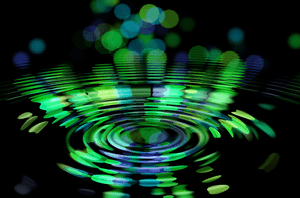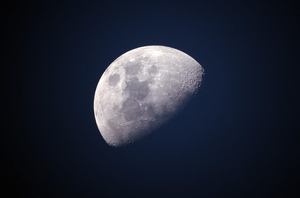After a month of effort, sleeplessness and fatigue, Allah (ʿazza wa jall) has rewarded us with the Day of Eid. Allāhu Akbar!
Anas (raḍiy Allāhu ʿanhu) said: The Messenger of Allah ﷺ came to Madinah, and the people (of Madinah) had two days in which they would play and have fun. He ﷺ asked, “What are these two days?” They replied, “We used to play and have fun in them during the pre-Islamic period.” The Messenger of Allah ﷺ said, “Indeed Allah has substituted for you something better than these two days: the Day of al-Aḍḥā and the Day of al-Fiṭr” (Abū Dāwūd).
Eid al-Fiṭr is a day of celebration for the whole Ummah. We, the sinners, have inshāAllah been forgiven throughout this month. It is a day of joy and happiness. We should be happy that Allah (ʿazza wa jall) allowed us to fast and perform qiyām throughout Ramaḍān. And we should be grateful that He granted us a month of immense blessings, forgiveness and goodness, and blessed us with Laylat al-Qadr. Allah (ʿazza wa jall) says,
قُلْ بِفَضْلِ اللّٰهِ وَبِرَحْمَتِهِ فَبِذٰلِكَ فَلْيَـفرَحُوْا ؕ هُوَ خَيْرٌ مِّمَّا يَجْمَعُوْنَ
“Say: In Allah’s grace and mercy let them rejoice. That is far better than whatever (wealth) they accumulate” (10:58).
Eid is a joyous day: a day when we wear our best clothes, attend the Eid ṣalāh, and spend the day spreading love and joy in our families and communities. We congratulate each other and ask Allah to accept each other’s deeds in Ramaḍān. We strengthen family bonds by inviting and visiting our relatives. We share food with our neighbours and the poor.
Eid is the greatest gathering of Muslims. It is a symbol of strength, unity, brotherhood and love. It is a day full of blessings and opportunities to be forgiven. Umm ʿAṭiyyah (raḍiy Allāhu ʿanhā) said, “We used to be ordered to come out on the day of Eid, even the young girls and menstruating women from their houses. They would stand behind the men and declare the greatness of Allah along with them, and supplicate to Allah along with them, hoping for the blessings of that day and its purification (from sin)” (Bukhārī).
Eid is a day of takbīr. Allah (subḥānahū wa taʿālā) says,
وَلِتُکْمِلُوا الْعِدَّةَ وَلِتُکَبِّرُوا اللّٰهَ عَلٰى مَا هَدٰٮكُمْ وَلَعَلَّکُمْ تَشْكُرُوْنَ
“…He wants you to complete the prescribed period (the month of Ramaḍān) and to glorify Allah for having guided you; so that you may be thankful” (2:185).
Allāhu Akbar is the declaration of Allah’s absolute greatness, perfection and might. As He is greater than everyone and everything, He is the only One who deserves to be worshipped and glorified. On this day of happiness and joy, we glorify and thank Allah for allowing us to complete a month of obedience and good deeds. We thank Him for bestowing us with the greatest blessing: the blessing of īmān.
اَللهُ أَكْبَرُ اَللهُ أَكْبَرُ ، لَا إِلٰهَ إِلَّا اللهُ وَاللهُ أَكْبَرُ ، اَللهُ أَكْبَرُ وَلِلّٰهِ الْحَمْدُ
The Day of Eid is a day of joy and happiness, not a day of sin and disobedience to Allah. Islam is a religion of balance. We can have fun — so long as it is ḥalāl, in moderation, and we don’t make it our sole purpose.
Don’t ruin your efforts of Ramaḍān by engaging in ḥarām on this blessed day. Don’t switch from listening to the Qur’ān to listening to music. Pray all five ṣalāhs with the congregation in the masjid. Preserve your modesty and don’t flaunt your beauty in public or online. Wakīʿ (raḥimahullāh) said, “We went out with Sufyān al-Thawrī (raḥimahullāh) on Eid and he said, ‘The first thing that we will begin this day of ours with is the lowering of the gaze.’”
On this great day, we remember those who are suffering and oppressed, the orphans and the widows, the unjustly imprisoned and those who are sick. May Allah bring the happiness of Eid to the entire Ummah and restore its honour and glory. May your Eid be blessed!
اَللهُ أَكْبَرُ اَللهُ أَكْبَرُ ، لَا إِلٰهَ إِلَّا اللهُ وَاللهُ أَكْبَرُ ، اَللهُ أَكْبَرُ وَلِلّٰهِ الْحَمْدُ
“The believer has five Eids:
- Every day that passes from his life without a sin being written down against him is a day of Eid.
- The day that he will exit from this world with īmān is a day of Eid.
- The day he will cross the ṣirāṭ (the bridge over Hell) and is saved from the horrors of the Day of Judgement is a day of Eid.
- The day that he will walk into Jannah is a day of Eid.
- The day he sees His Lord is a day of Eid.”
-Imām Mālik (raḥimahullāh)




